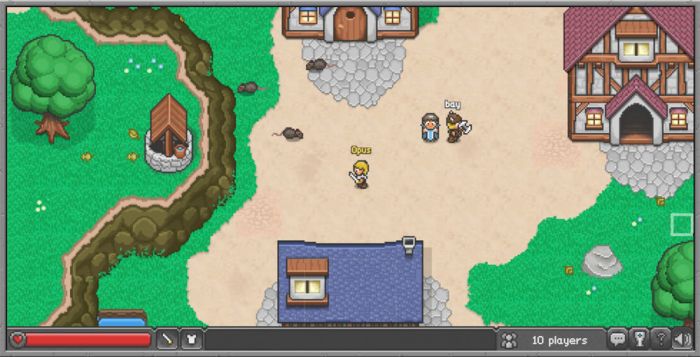BrowserQuest Lets You Relive the Days of Classic Video Games via HTML5 Goodness
16-bit nostalgia as well as more proof that Flash is becoming increasingly irrelevant and unnecessary in today’s web environment.

Web-based video games are nothing new, but from a web development perspective, there is something unique about BrowserQuest. Developed by Mozilla, BrowserQuest is not only a nostalgic throwback to the likes of The Legend of Zelda, it’s also a showcase for what you can do without Flash. WebMonkey gives a brief overview of the technology used to create the game:
BrowserQuest’s backend, which handles the real-time multiplayer aspect of the game, is written in JavaScript and runs on Node.js. As you would expect BrowserQuest uses the HTML5 Canvas element to actually render its 16-bit-style world and hooks into the HTML5 audio APIs for sound effects.
BrowserQuest is responsive as well, using @media queries to adapt to the size of your screen.
WebSockets — which are back, after being rewritten to fix some early flaws — handle the chat feature, which allows players to communicate within BrowserQuest. The final element in BrowserQuest’s HTML5 puzzle is localStorage, which saves your progress as you move through the game.
Yet another example of why Flash is becoming increasingly irrelevant and unnecessary in today’s web environment.
Enjoy reading Opus? Want to support my writing? Become a subscriber for just $5/month or $50/year.
Subscribe Today